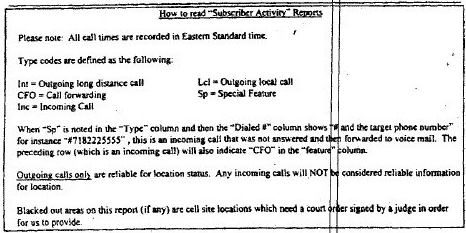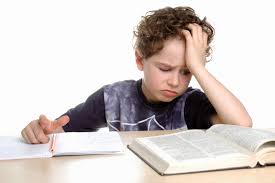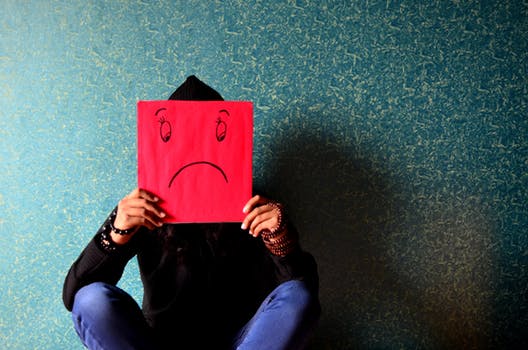This is entirely my own personal opinion, but no I don’t think he is. Of course there are some questionable parts to Adnan Syed’s story but there are also questionable parts to the case that was built against him.
 I guess this should probably start off with a summary of what happened for anyone who hasn’t listened to Serial or even heard of the case before. On January 13 1999, Hae Min Lee had been murdered around 3-4 pm. That is the only thing that is certain about the case was that she had been murdered, everything else about her case is super questionable and even the case against her supposed killer and ex boyfriend, Adnan Syed, is lacking any physical evidence. The only thing the case against Syed really has is the testimony of a guy named Jay who claims to have helped Syed bury Hae Min Lee’s body, but even this testimony is questionable because it has many holes and has changed quite a few times.
I guess this should probably start off with a summary of what happened for anyone who hasn’t listened to Serial or even heard of the case before. On January 13 1999, Hae Min Lee had been murdered around 3-4 pm. That is the only thing that is certain about the case was that she had been murdered, everything else about her case is super questionable and even the case against her supposed killer and ex boyfriend, Adnan Syed, is lacking any physical evidence. The only thing the case against Syed really has is the testimony of a guy named Jay who claims to have helped Syed bury Hae Min Lee’s body, but even this testimony is questionable because it has many holes and has changed quite a few times.
Most of my opinion on this case has been formed while listening to the podcast Serial. It is hosted by a journalist by the name of Sarah Koenig, who was brought the case by Rabia Chaudry (a friend of Adnan) with the belief that Adnan’s lawyer had botched the case in order to get more money for the appeal.  A fact that supports this theory is that Adnan’s lawyer failed to contact a girl by the name of Asia McClain who claimed to have seen and talked to Adnan in the public library when Adnan was supposedly murdering Hae Min Lee.
A fact that supports this theory is that Adnan’s lawyer failed to contact a girl by the name of Asia McClain who claimed to have seen and talked to Adnan in the public library when Adnan was supposedly murdering Hae Min Lee.
With all of the evidence and questions Serial has brought up about the case, it makes Adnan seem less and less guilty. On the podcast’s webpage (https://serialpodcast.org) it has a section to allow listeners to look at every single piece of evidence for themselves and even has a timeline that compares Jay’s testimonies and Adnan’s story to Adnan’s call log. The podcast tries to be as unbiased as possible, even the host who focussed on the case for over a year of her life claimed that “if you ask me to swear that Adnan Syed is innocent, I couldn’t do it” (Episode 12).
So, if Serial was so unbiased what about it lead me to believe that Adnan is innocent?
Well, I think it has a lot to do with how ridiculous the case is against Adnan.  Anyone with any idea of what’s just and what’s unjust could clearly tell that this is an unjust case. The case against Adnan only has a few supporting details and almost all of the have major holes in them. Jay’s testimony is unreliable and changes each time he tells it, as well as it differs from the testimony of a girl named Jenn who was supposedly with Jay. Not only does Jay’s story change each time it’s told, it doesn’t match the call logs. The call logs are another major supporting detail in the case against Adnan, but once again are proven to be unreliable. On a AT&T Fax Cover Sheet (that wasn’t used within Adnan’s trial), it directly says that “incoming calls will not be reliable information for location”.
Anyone with any idea of what’s just and what’s unjust could clearly tell that this is an unjust case. The case against Adnan only has a few supporting details and almost all of the have major holes in them. Jay’s testimony is unreliable and changes each time he tells it, as well as it differs from the testimony of a girl named Jenn who was supposedly with Jay. Not only does Jay’s story change each time it’s told, it doesn’t match the call logs. The call logs are another major supporting detail in the case against Adnan, but once again are proven to be unreliable. On a AT&T Fax Cover Sheet (that wasn’t used within Adnan’s trial), it directly says that “incoming calls will not be reliable information for location”.

This Fax Cover Sheet makes another hole in the case against Adnan. Usually murder cases are straight forward, but this case is nothing like that because it’s lacking any physical evidence and it was formed on the testimony of a guy who has changed his story countless times.
With the help from Serial, I have come to the conclusion that Adnan Syed is innocent but obviously my opinion on an almost 20 year-old case (a case that’s older than I am) won’t matter. What I can say is that Adnan deserves a re-trial, a re-trial that answers all of the holes that Sarah Koenig has poked into the case against Syed, a re-trail that features Asia McClain’s support to Adnan’s alibi and a re-trial that addresses there was not enough evidence against Adnan to put him in jail for life.



 As much as I hate to admit it, I might not have even followed along properly if this had’ve been an article or essay. I personally find it so much easier to absorb and understand what the author is saying by listening to what’s being said, rather than reading it. Honestly, I’m pretty sure I’ve went and found some type of audio to listen to for all of the essays that we’ve had to read for this course so far, it just makes things so much easier to understand! Of course there is downfalls for audiobooks and podcasts, which could include things like getting bored and losing focus or not liking the way the person talks or even sounds. The benefits of actually reading the text is that you can read at your own pace and come up with connections on your own.
As much as I hate to admit it, I might not have even followed along properly if this had’ve been an article or essay. I personally find it so much easier to absorb and understand what the author is saying by listening to what’s being said, rather than reading it. Honestly, I’m pretty sure I’ve went and found some type of audio to listen to for all of the essays that we’ve had to read for this course so far, it just makes things so much easier to understand! Of course there is downfalls for audiobooks and podcasts, which could include things like getting bored and losing focus or not liking the way the person talks or even sounds. The benefits of actually reading the text is that you can read at your own pace and come up with connections on your own. The idea of trying to remember what I did 6 weeks ago seems impossible and I have access to text messages and all of that kind of information. I think trying to make Adnan figure out what he did 6 weeks ago before his interview is really unfair.
The idea of trying to remember what I did 6 weeks ago seems impossible and I have access to text messages and all of that kind of information. I think trying to make Adnan figure out what he did 6 weeks ago before his interview is really unfair.






